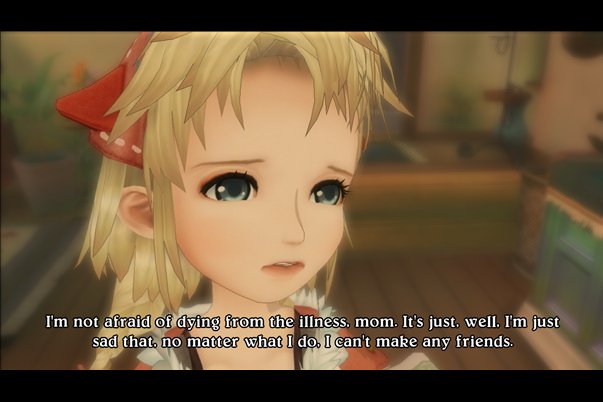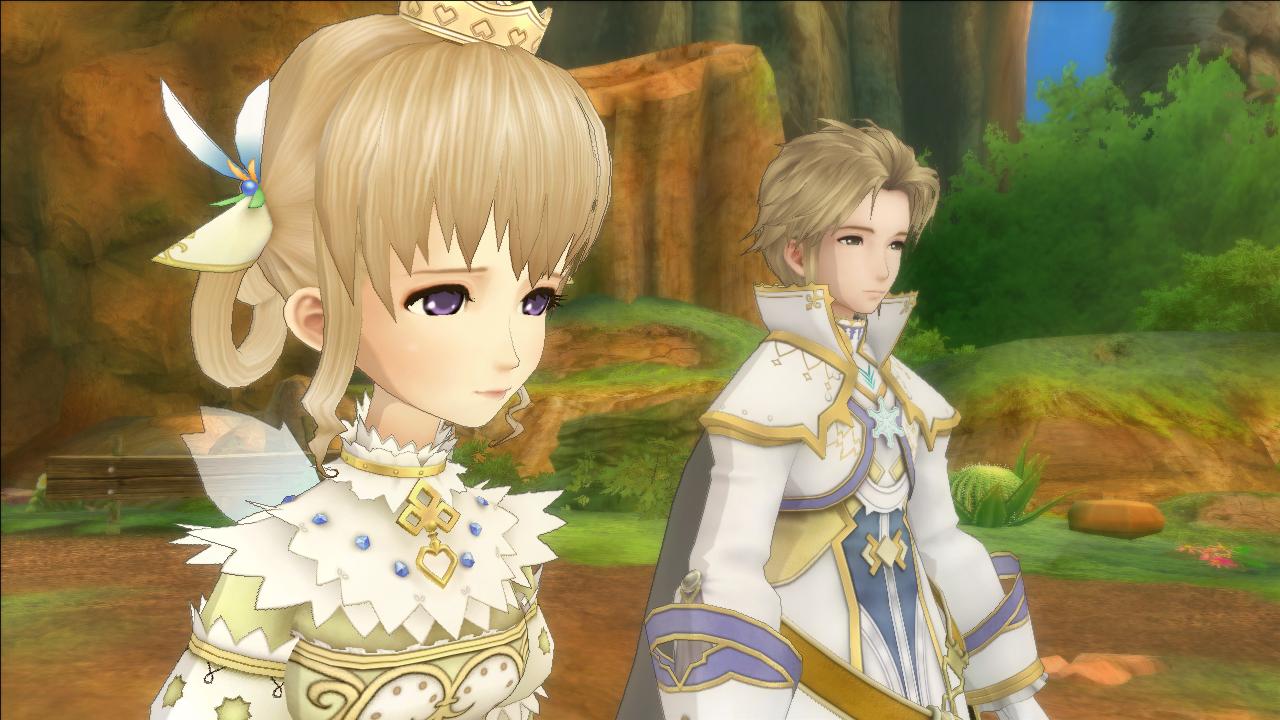Why you can trust GamesRadar+
So, we've established that the battles are awesome, but the story is no slouch either. As we mentioned, the idea of Frederic Chopin, a real historical figure, entering a magical dream land seems a bit out there at first. While the main story is told in aforementioned fantasy world, with a fictionalized Chopin as one of the characters, the story's chapters are broken up with a series of interludes that tell the real-life story of the famous pianist. This allows players to draw their own parallels between real historical events and what's going on in the game, and brings a sense of realism to the otherwise fantastical world of Eternal Sonata. What on the surface seems to be a wacky premise, ultimately creates a brilliant contrast between reality and fantasy.
The only disappointing aspect of the story is the RPG-typical stilted dialogue between characters in the cinemas. Instead of carrying on a natural, flowing conversation, the characters engage in the all too familiar pattern where one character says a sentence or two, followed by a pause, then another character says a sentence, pause, and so forth. Luckily, the story and writing are strong enough to shine through anyway.

Above: In this world, the ability to use magic is believed to be a sign of having a terminal illness
More info
| Genre | Role Playing |
| Description | Next-gen RPG pits light versus dark with a hybrid, turn-based and action-oriented battle system. |
| Platform | "Xbox 360","PS3" |
| US censor rating | "Teen","Teen" |
| UK censor rating | "","" |
| Release date | 1 January 1970 (US), 1 January 1970 (UK) |




